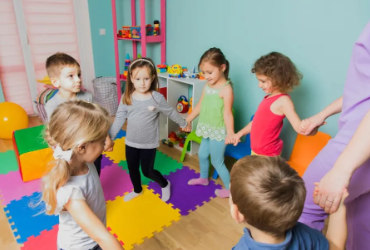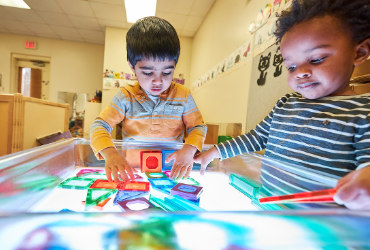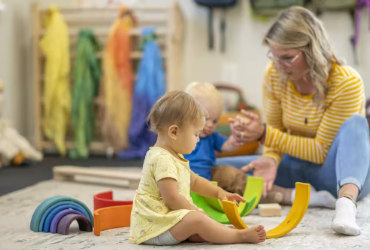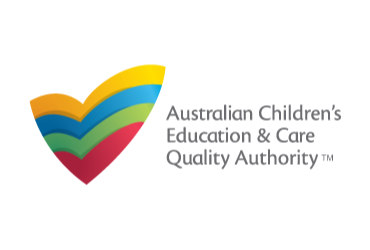
Articles
- Home
- Articles

Family Daycare vs. Traditional Daycare: Which Is Right for Your Child?
Choosing the right daycare for your child is one of the most important decisions you'll make as a parent. Two common options available are family daycare and traditional daycare centres. Both have their merits, and the choice ultimately depends on your family's needs, preferences, and your child's unique personality. In this blog entry, we'll explore the differences between family daycare and traditional daycare to help you make an informed decision.
Family Daycare:
Home-Like Environment: Family daycares are typically operated in a caregiver's home, creating a cozy and home-like atmosphere. This smaller setting can be less intimidating for children, especially those who are shy or introverted.
Personalized Care: With fewer children to care for, family daycare providers can offer more individualized attention. This can be particularly beneficial for infants and younger children who require a closer bond with their caregiver.
Mixed-Age Groups: Family daycares often have mixed-age groups, allowing younger children to learn from older peers and vice versa. This can foster a sense of community and encourage empathy and cooperation.
Flexible Hours: Some family daycares offer flexible hours, which can be convenient for parents with irregular work schedules or those who need extended care beyond traditional business hours.
Consistency: In family daycare, your child interacts primarily with the same caregiver, which can provide a sense of stability and consistency in their daily routine.
Traditional Daycare:
Structured Learning: Traditional daycare centres often follow a structured curriculum designed to promote early learning and school readiness. This can be a significant advantage for children nearing school age.
Licensed and Regulated: Traditional daycare centres are typically licensed and regulated by state or local authorities, ensuring that they meet specific safety and quality standards.
Diverse Peer Interactions: With a larger number of children, traditional daycare centres provide ample opportunities for your child to interact with a diverse group of peers. This can help them develop strong social skills and adaptability.
Specialized Staff: Many traditional daycare centres employ teachers and caregivers with specialized training in early childhood education. These professionals can offer expertise in child development and age-appropriate educational activities.
Preparation for School: Traditional daycare centres often aim to prepare children for the formal education system. They introduce structured learning activities, such as pre-reading and math skills, which can benefit school readiness.
Parental Convenience: Traditional daycare centres are often more convenient for parents who require full-time childcare during regular work hours. They usually have more extensive opening hours and can accommodate a broader range of schedules.
Factors to Consider:
Your Child's Personality: Consider your child's temperament and needs. Some children thrive in a smaller, more intimate family daycare setting, while others may enjoy the social interaction and structured learning opportunities provided by a traditional daycare.
Your Work Schedule: Evaluate your work hours and flexibility. If you require childcare during non-standard hours or have a demanding work schedule, family daycare's flexibility might be a better fit.
Your Child's Age: The age of your child plays a significant role. Infants and younger children may benefit from the personalized care offered by family daycares, while older children might benefit from the structured learning environment of a traditional daycare.
Regulations and Accreditation: Research the licensing and accreditation of daycare options in your area. Ensure they meet safety and quality standards, regardless of whether it's a family or traditional daycare.
Your Budget: Consider your budget and financial situation. Family daycares can sometimes be more cost-effective, but traditional daycare centres might offer additional services and educational programs that come at a higher price.




